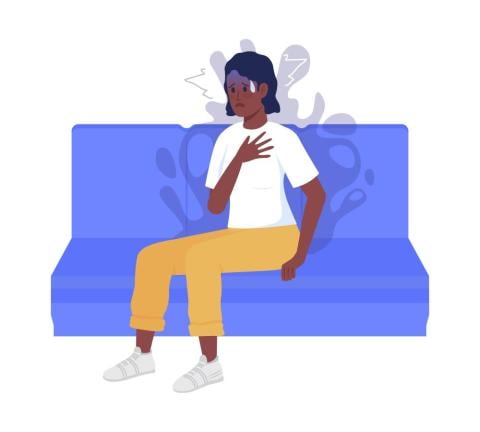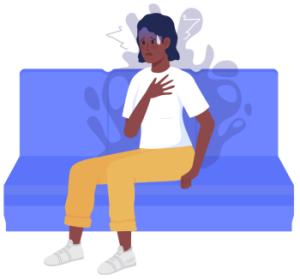Anxiety, Depression, and Psychosis: From Dark to Light
 When I was about 22 years old, I had, what they call in Shakespearean studies, hubris. I had recently graduated from a competitive public high school, and had been accepted into the University of Chicago, undergraduate studies. Little did I know what was in store for me.
When I was about 22 years old, I had, what they call in Shakespearean studies, hubris. I had recently graduated from a competitive public high school, and had been accepted into the University of Chicago, undergraduate studies. Little did I know what was in store for me.
In a state of what is called premorbid mental illness, I transferred from U Chicago to NYU. After soon dropping out of NYU in order to “spend more time with friends,” I had my first psychotic breakdown.
The next couple years of my life would amount to a living hell. As I pretended to take the antipsychotic pills I was prescribed, I routinely got into arguments with my family, the local police, and so on.
I remember being so paranoid that I would have specific garbage cans I would throw the pills away in. Never mind the fact that my initial breakdown landed me in jail for a night, now I was just sort of a disgruntled community member pretending to take his pills and somehow getting away with it.
Over time, I would learn to take the pills properly (now I take a once-a-month antipsychotic injection, which I find easier) and stabilize. Stabilizing allowed me to complete undergraduate studies, work, take vacations, and in general just enjoy my time. I have been stable now and on medication for about five years, and I definitely have not looked back.
Sure, I have gained a bit of weight since I started taking medication, but I personally don’t attribute the weight gain necessarily to the medication. I think it could just be age or genetics. And even if the weight gain resulted from the medication, I don’t mind.
I have taken many antidepressants (and mood stabilizers!) in addition to my regular antipsychotic because, like so many people in this country, some of whom I have met, I suffer from anxiety/depression. At times, my anxiety/depression would get so bad, I would become virtually paralyzed. I remember one time having anxiety so bad that as I lay in the emergency room of the local psychiatric medical center, all one nurse could say was, “You’ve been as quiet as a bird.”
And then there were all the times I was actually on the unit, having to stay there sometimes upwards of three weeks, while doctors debated whether they could trust me to take the medication or not. All in all, none of this was fun, but I am here to tell you, it can and does get better. If you take your medication diligently, you will find an immensely improved quality of life, no matter how unappealing the idea of taking medication may be to you. You will find that as you continue to take medication, you will for the most part only make progress, constantly developing confidence, mental sharpness, and emotional stability.
In the end, you must trust the medical professionals who have found evidence that certain chemicals in the brain, such as dopamine and serotonin, must be properly regulated to obtain proper mental health. If you are told you have a dopamine or serotonin imbalance, take my advice: do not take it personally. Although the medication you are prescribed at any time may not be ideal, you should always believe in the intentions of the doctors – they are attempting to help you live life to the maximum level of enjoyment.
















